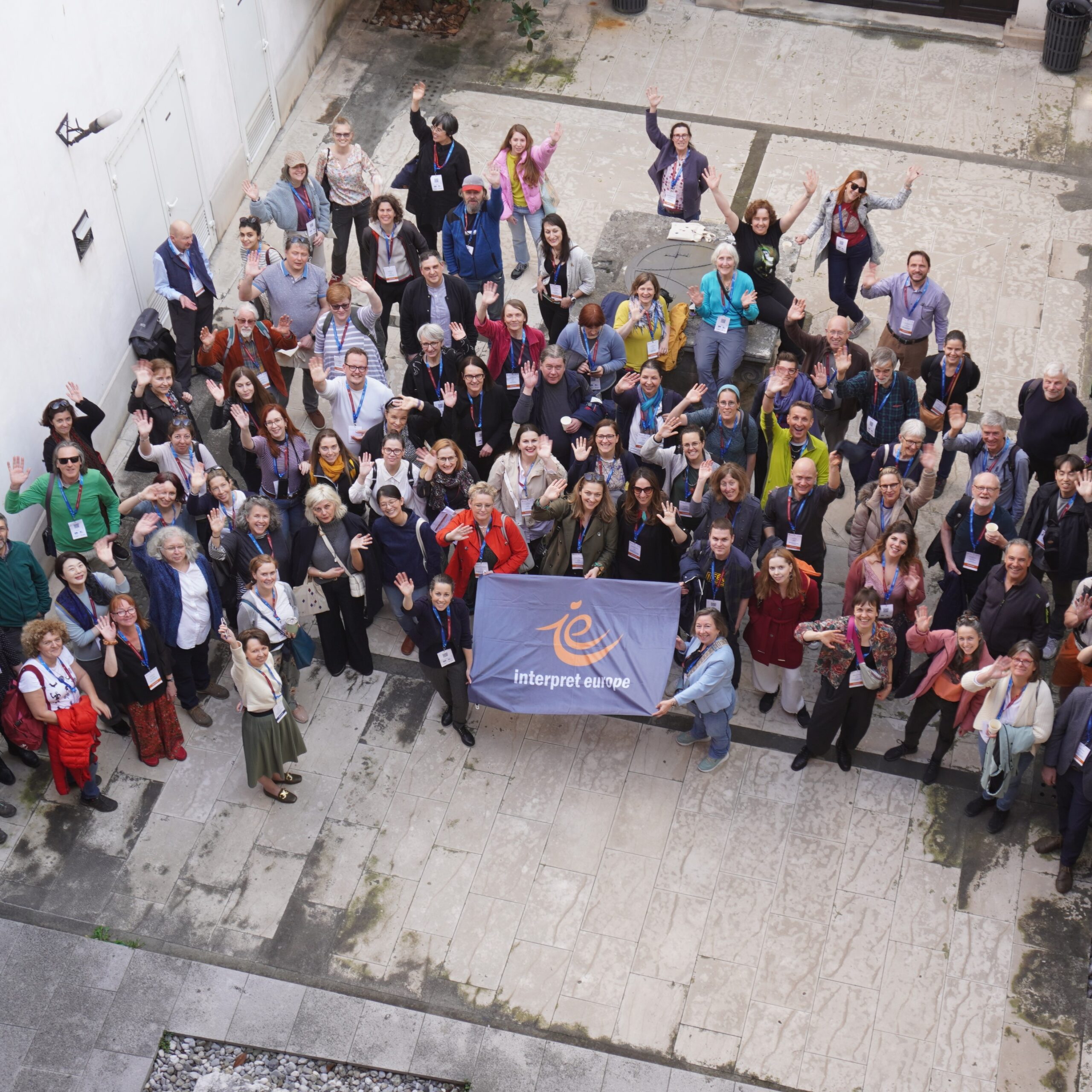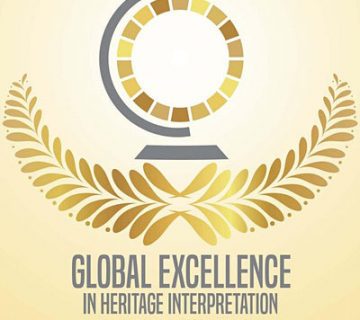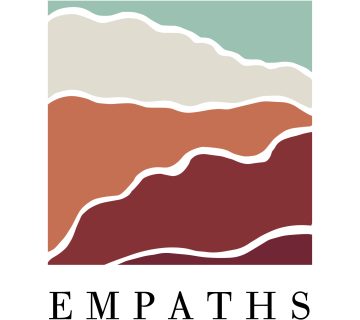Seeking to challenge mindsets on sustainability at the Interpret Europe conference #iecon24 held in Koper, Slovenia, on 21-24 March 2024.
What can be achieved in four days of conversations, presentations, lectures, workshops, meals, bus rides and site visits, with a view to sustainable development within the heritage interpretation sector? Considering where these ultimate frontiers stand, how we can challenge mindsets in the process and what this actually means is why over 120 people came from all over Europe and beyond to a welcoming town at the top of the Istrian peninsular.
As Interpret Europe’s Managing Director, Helena Vičič, reminded us in her welcome speech, we might find some guiding principles in the UN’s Education for Sustainable Development (ESD) and for Global Citizenship (EGC), and the European Commission’s Stormy Times report. How we might actually step up to the challenge(s) was beautifully and generously set out by one of the keynote speakers, Professor David Uzzell of the University of Surrey, UK, in the form of ‘giving away’ the skills of interpretation so that people can work things out for themselves at other sites, too. This might help us all take responsibility locally for our own spaces and communities, when the issues we face are often so easily dismissed as ‘global’ (and thus some higher power’s responsibility instead). The global ‘issue’ (I use the word with affection) of interpretation and the World Heritage Sustainable Development Policy is, in turn, the recipient of in-depth care and investigations at WHIPIC in South Korea, led by Sujeong Lee, another keynote speaker. She came to both share and discuss with us in Europe. And, as reading the conference programme abstracts and memories of our interactions attests, so many of us brought our equally valuable own work, case studies, ideas and inspirations from 24 countries.
Koper/ Capodistria was the perfect setting for our conference: a multicultural Adriatic gem, whose warm embrace can be fast felt by anyone arriving through the town’s walls, not to mention also due to the presence of the UNESCO Chair of Interpretation and Education for Enhancing Integrated Heritage Approaches at the Faculty of Humanities of the University of Primorska, our generous hosts. This sensation of coming to our IE home for a few days was even more important after the lengthy journeys that many of the participants undertook to come to Koper, putting sustainability into action with slow travel and for some, a number of stops en route to appreciate more of our beautiful continent, its heritage, nature and people.
From the determination with which two ladies from Slovenia stood up in Sighișoara, Romania, at the end of the 2023 conference to assure us we could come together once again this year, through the unrelenting efforts of IE’s management, team and volunteers to deliver the necessary admin and activities, to the dedication with which the presentations, workshops and visits were prepared and the subsequent dynamism with which they were imparted, and the warmth with which old friends and new gathered together to share knowledge, ideas and experiences… All of this is testament to the sustainability of heritage interpretation in Europe and beyond.
For a sector that is based around both adding value and disseminating specific values, via engagement, preservation, understanding, and sharing, we need impassioned, knowledgeable, inclusive, kind and analytical individuals to do this work. This is the way in which a strong eco-system of heritage interpretation – of both trained interpreters, and publics empowered to interpret heritage for themselves and across their spheres of influence – can be passed on to the next generations. Even against the complex backdrop of climate goals going ever further off-track, rising nationalism across many of our countries and the related polarisation of societies, technology (specifically AI) behaving badly, and various other factors, as covered in the keynote by Lluís Bonet of CHARTER and the University of Barcelona, whose skills as an economist brought a whole new set of interpretations to the heritage sector’s status quo.
In spite of, and also because of all this, our best answer as to what sustainable development within the heritage interpretation sector truly means, requires and how it can be achieved, has been found in ourselves. As sustainability is always contemporary and is about us and our communities, as voiced by another of the keynote speakers, Špela Spanžel of the Slovenian Ministry of Culture, we must continue to nurture it within ourselves, our practices and relationships. With strength, empathy, flexibility to the tides and all the publics who we will join and will join us, we will do this all the way to Sulejówek 2025, where we will once again be able to take stock and share our insights and emotions when we meet again, next time in Poland.
Elisa Bailey is a curator, museologist and cultural strategist dedicated to making the cultural sector a kinder place for all, with a particular focus on commemorative practices and spaces, and socio-political graphics. She is based in Madrid, Spain. She can be contacted at: elisa@curacultura.art.
To cite this article: Bailey, Elisa (2024) ‘Finding the future of heritage interpretation within ourselves’ in Interpret Europe Newsletter 1-2024, pg.5-6.
Available online: https://interpret-europe.net/wp-content/uploads/2024/04/PDF-Newsletter_2024_1-spring.pdf




